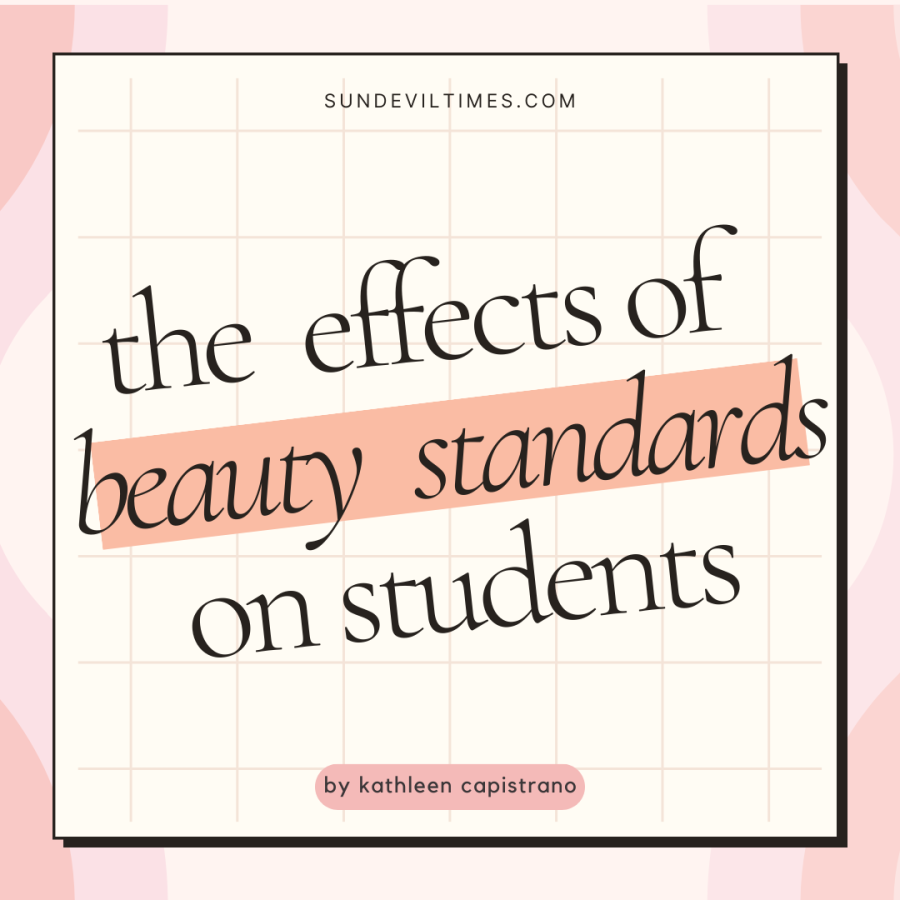How beauty standards affect teens
The pressure that stems from society
May 13, 2023
Beauty standards are typically defined as a specific set of features and traits ingrained in society that affect, and for some, set the perception of beauty and overall physical attractiveness.
“Beauty standards are ideas put onto people that generally create a false image or sense of identity within others,” said junior Emily Shanks.
The concept of beauty standards has almost always been a thing, stemming and evolving through and from social media, culture, religion, and even racial discrimination.
“[Personally,] I think the idea of beauty standards originated from . . . social statuses being based upon certain features people can have; like in Egypt back when King Tut was alive, it was normal and sought out to look [a certain way],” said junior Alexa Reid.
The standards set by society can be constricting and suffocating. Being constantly surrounded by unrealistic standards through the media and day-to-day life can severely impact self-esteem, leading to a desire to fulfill such expectations.
“[Beauty standards] can cause a false sense of identity and put unrealistic expectations on anyone, which, unfortunately, dissuades people, teens especially, from being true to themselves,” said Shanks.
According to the National Institutes of Health, teens, in particular, are very susceptible to these unrealistic expectations.
“A student especially can be negatively affected because a majority of students are under the age of 25,” said Reid. “Our brains haven’t developed yet, so many actions and information we take in can alter anything within our brains.”
Giving in to these standards is a double-edged sword. According to the University of Nevada, When society believes you meet the expectations, you are sometimes given better opportunities, jobs, pay, and overall better treatment. It can feel empowering in the moment, but it will only increase how conscious you are of appearance. When the initial euphoria wears off, you become more aware of how differently people are treated based on beauty alone.
“I think beauty standards affect people a lot, whether that be negatively or positively,” said junior Sadie Clifford. “Negatively, it can affect someone’s self-esteem and how they view themselves which can result in health problems, mental or physical. Positively, it can also let a person find themselves and who they are comfortable being.”
Because we are in an era of technology, social media has greatly contributed to these unrealistic beauty standards, with its users feeling pressured to continuously monitor their online appearances and look their best.
“[With] the amount of beauty standards going out in the media, I feel pressured all the time into changing my style and even trying to make my facial features look more Eurocentric,” said Reid.
Whether students realize it or not, they are constantly being bombarded with pictures depicting unrealistic standards. Over time, students begin to internalize the facial features, skin tones, and body types that society deems beautiful. This inevitably leads to a skewed perception of both the students themselves, and the people around them.
“It’s extremely difficult to separate society’s expectations from genuine, personal opinion when these standards are all we’ve been shown since childhood,” said Shanks.
While there are few solutions to prevent the effects of these standards worldwide, there are steps you can take to minimize the effects on your mental health.
“The only advice [I have] is to not let what people say and the ‘beauty standards’ nowadays keep you from being yourself,” said Clifford. “If you let it get under your skin, it will only cause you problems.”
According to Zanniee, sitting down and taking time to think about what styles and looks you like, and make you feel your best is a great way to avoid getting swept up in society’s overwhelming expectations.
“I think being yourself is way better because self-love is always way more beautiful than imitation,” said Shanks.


Unknown • Mar 24, 2025 at 2:46 pm
Thank you this was very useful.